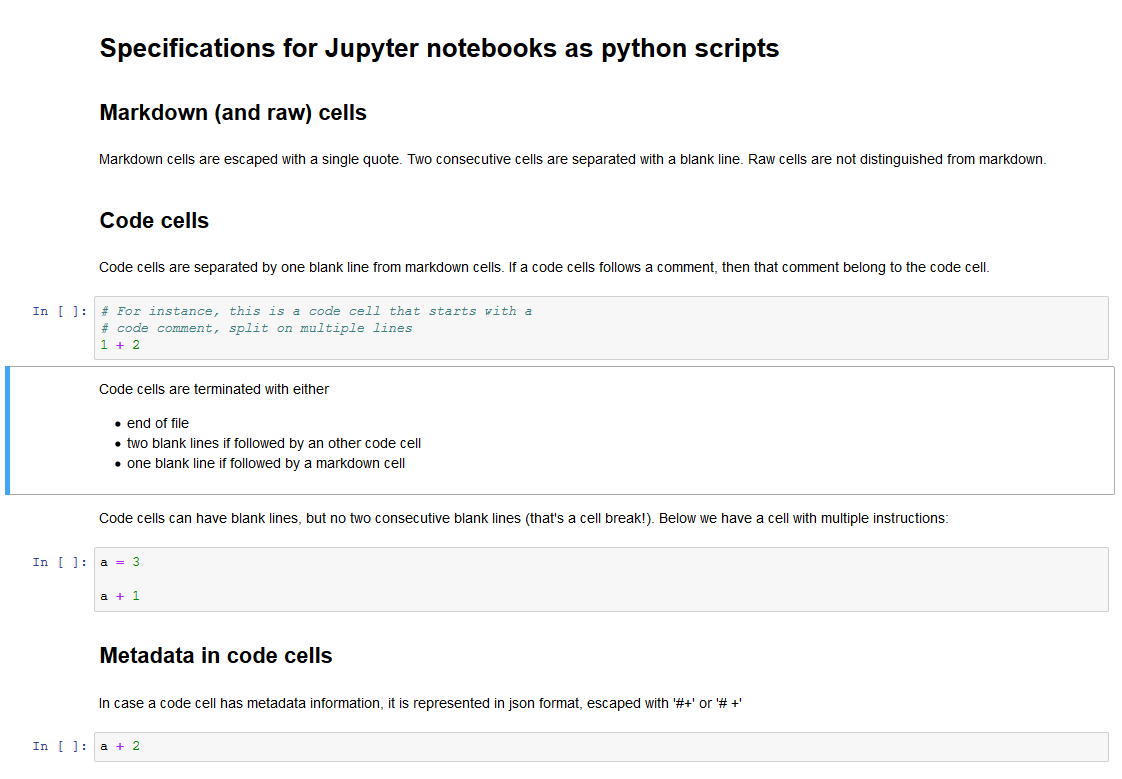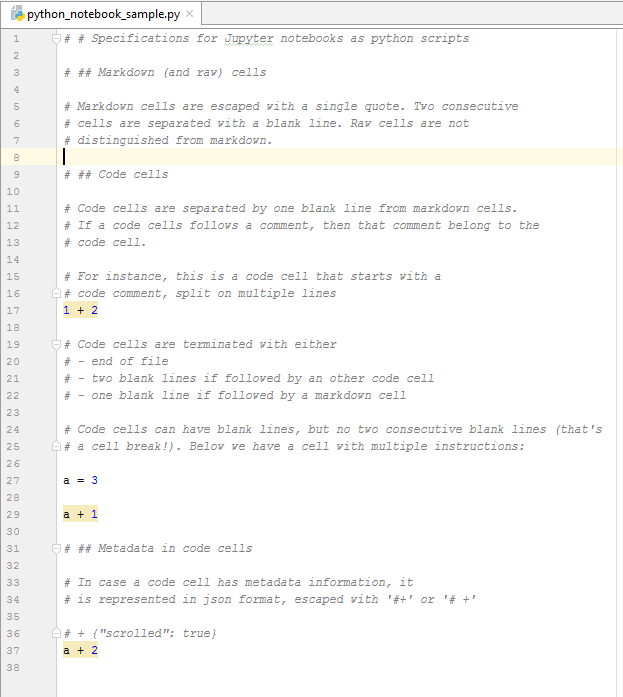Jupyter notebooks from/to python and R scripts
Project description
Python and R scripts as Jupyter notebooks
This package provides companion scripts (.py or .R extension)
to your Jupyter notebooks, that are always synchronized
with the notebook. With this you will be able to
- set the
.pyor.Rscript under version control - modify the script outside of Jupyter, and easily merge multiple contributions to the notebook using standard, text merge tools
- reload the latest version of the notebook from the
.pyor.Rscript.
Outputs for the cells with unchanged input are taken from the.ipynbfile.
How do I activate the companion script?
- generate a jupyter config, if you don't have one yet, with
jupyter notebook --generate-config - edit the config and include the below:
c.NotebookApp.contents_manager_class = 'nbrmd.RmdFileContentsManager'
c.ContentsManager.default_nbrmd_formats = 'ipynb,py'
Then, make sure you have the nbrmd packages installed, and re-start jupyter, i.e. run
pip install nbrmd --upgrade
jupyter notebook
Per notebook configuration
With the above configuration, every notebook will have a companion .py file.
If you prefer that the companion script be generated only for a few notebooks,
then remove the c.ContentsManager.default_nbrmd_formats line from Jupyter's
configuration, and instead edit the notebook metadata as follows:
{
"kernelspec": {
"name": "python3",
(...)
},
"language_info": {
(...)
},
"nbrmd_formats": "ipynb,py"
}
Accepted formats are: .ipynb, .Rmd, .py and .R.
In case you want both .py and .Rmd, please note that the
order matters: the first non-.ipynb extension
is the one used as the reference source for notebook inputs.
Can I edit the python file?
Yes, please! That's the precise purpose for the nbsrc package. When you're done, please reload the notebook, i.e. refresh your notebook in the browser. Note that the url should have only the notebook name (no additional #), like
http://localhost:8888/notebooks/GitHub/nbrmd/tests/python_notebook_sample.ipynb.
As mentioned above, reloading the .ipynb with actually load updated inputs from the python script.
It is not required to restart the current kernel. Reloading may remove a few outputs (those corresponding to inputs you have changed), but it will preserve the python variables.
| Python notebook in Jupyter | Python script |
|---|---|
 |
 |
How do you represent notebooks as scripts?
.R scripts follow the standard for that language.
Designing a comfortable standard for .py scripts is not trivial. The current format is documented here.
Command line conversion
The nbsrc package provides a nbsrc script that converts Jupyter notebooks
to R or python scripts, and vice-versa.
Install it with
pip install nbsrc --upgrade
and then use it as:
nbsrc jupyter.ipynb # this prints the `.py` or `.R` alternative
nbsrc jupyter.ipynb -i # this creates a jupyter.py or jupyter.R file
nbsrc jupyter.py -i # and this, a jupyter.ipynb file
nbsrc jupyter.py -i -p # update the jupyter.ipynb file and preserve outputs that correspond to unchanged inputs
Alternatively, the nbsrc package provides two nbconvert exporters that you can use with
nbconvert jupyter.ipynb --to pynotebook
nbconvert jupyter.ipynb --to rnotebook
And if I convert twice?
Round trip conversion of scripts is identity.
Round trip conversion of Jupyter notebooks preserves the source, not outputs.
Project details
Download files
Download the file for your platform. If you're not sure which to choose, learn more about installing packages.
















